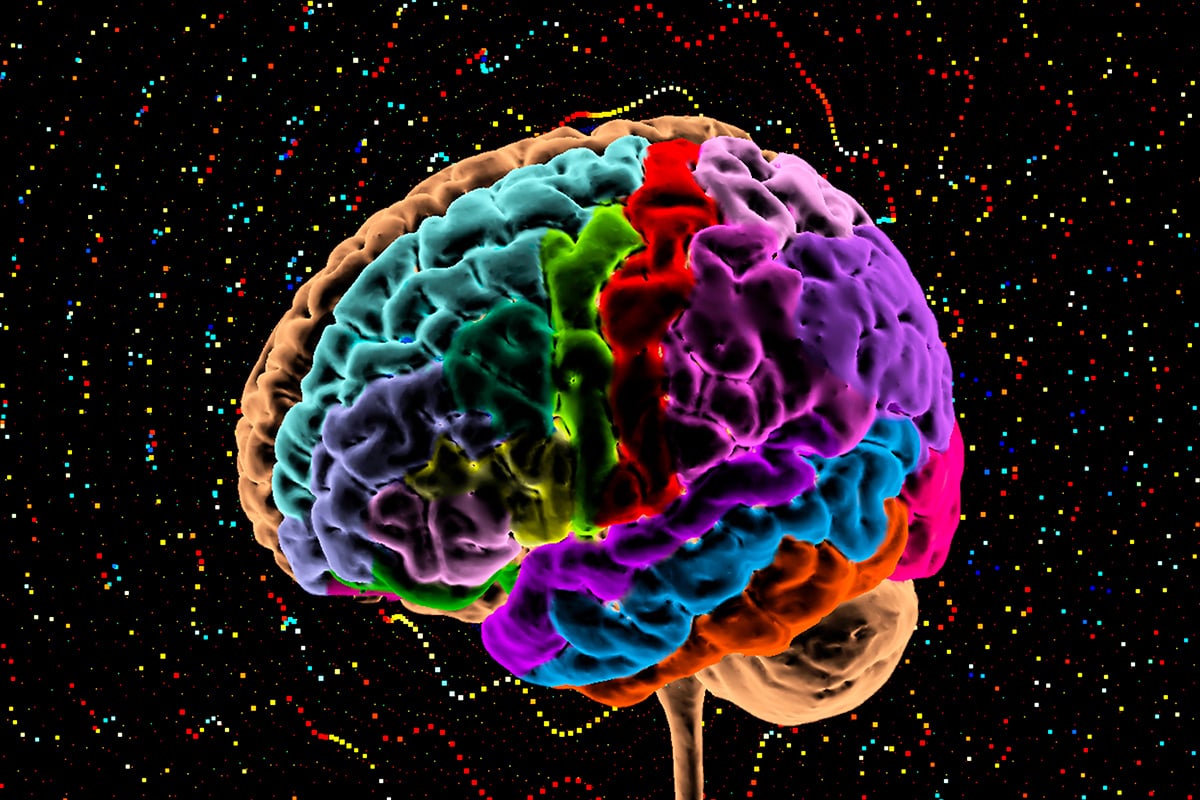Having suffered from depression and other mental-health problems for more than 10 years, Alexander Mendelsohn (not the author’s real name) wonders why the mental-health system lacks the quantitative rigour that physics benefits from

Warning: this article contains discussions of mental illness, depression and suicide.
This article is the result of the powerlessness I have felt within the mental-health system. Of my despair, hopelessness and rage. I have used these emotions as fuel to ignite every last neuronal connection that remains from a life devoted to learning. If you find any of what follows coherent – and perhaps even compelling – you should know that it was written by someone who is, after more than a decade, still mentally ill.
Delusion permeates my mind like a hall of mirrors. Even supposedly simple tasks, such as cooking a meal or brushing my teeth, take huge amounts of energy. Over the last two years I have not ventured further than two streets from my home. My chronic dial tone of background anxiety confines me within these walls – and this is the best I have felt in years.
I first started suffering from depression in 2010 and my situation slowly worsened until the start of the second year of my PhD in autumn 2015. It was then that my doctor prescribed me with the drug Sertraline, which was the first anti-depressant I had ever been given. On Halloween 2015, four days after starting the drug, I found myself in the foetal position, shaking uncontrollably, a sensation of liquid fear surging through my brain. Having never had any symptoms of anxiety before, I was now experiencing almost all of them, in their most severe form.
I stopped the Sertraline and took a break from my work, but the symptoms remained. Over the next eight months, using a number of therapies, including meditation and counselling, I managed to assemble a Frankenstein brain, capable of going back to my PhD. I cannot emphasize enough the sheer ridiculousness of what I was doing. I felt like I should have been locked in a padded cell or dead. Instead, I managed to finish my doctorate in September 2019, at which point I collapsed with exhaustion.
My invisible battle
Like every counsellor I have ever had, I too thought my problem could be solved solely through talking. I was wrong. My mental illness did need to be treated with medication. After my PhD, there followed a long slog of treatments, each one thrown at me as if by a blindfolded darts player. Some at least nearly hit the dartboard. But although my recovery has slowly progressed, I cannot say that my experience of the mental-health system has been good. In fact, from my perspective as a physicist, the way it operates is bizarre, awful and completely unscientific.
Most articles criticising the mental-health system tend to be written by those who are no longer mentally ill or by professionals who have experience treating such people. This article, in contrast, was written by me, during my mental illness. It contains the emotion, the vitriol and the anger, of someone wronged. I cannot express how difficult this article has been to write. So to those of you taking the time to read these maddening lines of text, I appreciate it.
From my perspective as a physicist, the way the mental-health system operates is bizarre, awful and unscientific
How it all began
My interest in physics started as a child after growing up with an older sister who suffered from Rett syndrome. It’s a rare and severe disease that debilitates the individual with a host of neurological and physiological problems. In trying to find out more about the condition, I realized I had a deep thirst for answers about the nature of reality itself. In 2011 I therefore started an undergraduate degree in physics at a university in the UK, hoping afterwards to go into research.
Knowing how hard it would be to get a place on a PhD, I started studying long into the night, reading everything I could find. But despite giving it my all, I didn’t end up with better grades. Everything just got harder. I felt emptier and emptier as the colour of my emotions started evaporating from my life. At the first signs of depression, I went straight to my doctor. I talked to him like a typical teenager – as if how I was feeling was the worst thing a person could ever experience.
The doctor and I had a very long conversation, but I only remember one thing he said: “You don’t know what other people are going through – there are a lot of people suffering out there.” His intention, I suppose, was to provide some context for my obvious lack of awareness. And given that most other students in his surgery were in all likelihood worse off than me, I thought they were wise words. A decade later, however, and I am probably in a worse state than all of them (at least those who are still alive).
Indeed, my journey into mental illness has been littered with that same goddamn phrase: “You don’t know what other people are going through.” The last time it was said to me, I was literally on my knees, in pure agony. I desperately needed someone to listen and provide some relief, or at least the hope of relief. If it were not for the stubborn support of my family, and my own dogged resistance to despair, I would certainly by now be dead.
But my greatest fear is not death. It is leaving this world without sharing what I have learned. It is a burden I do not want to carry any longer. It has made fighting my illness twice as hard and I do not want my suffering to have been a waste. The loss of one’s voice – and not the suffering itself – is one of the most distressing things about going through severe mental illness.
Furthermore, I want help. I am not completely better yet and I still do not understand what happened to me after my severe reaction to Sertraline, which is statistically one of the safest anti-depressants on the planet. What’s more, why have none of the 10 psychological and psychiatric experts involved in my treatment ever shown the slightest interest in trying to figure it out? As a scientist, I find this egregious.

My PhD life
After graduating in 2014, I was lucky enough to be accepted onto a PhD in experimental physics in electron crystallography. It had always been my dream to do some “proper” research, but I quickly realized I was way out of my depth. Like many other new PhD students, I was taken aback by just how much rigour goes into experimental work.
“Did you check this?” my supervisor would ask. “Or what about that?” Knowing I hadn’t checked any of those things, I stood there with a feeling of dread, fully aware of what was about to transpire. “Well, we’ll have to redo the experiment then,” he’d say – knowing full well that by “we” he meant “me”. Fortunately, I had access to one of the most precise and accurate electron microscopes in the world. I made plenty of mistakes but at least they were good-quality mistakes and eventually I got data worthy of publication.
But far from finding it easy to interpret our observations and reveal new secrets about the world, my supervisor and I could make neither head nor tail of the results. Noise, complexity or just plain ignorance prevented us from seeing what was right in front of our eyes. Eventually, after plenty of wrong simulations, wrong hypotheses and wrong ideas, we got our answer. I was glad to get a publishable and, to me, interesting result.
In contrast to my rigorous physics experiments, however, what astonishes me is that absolutely no-one has ever taken a single measurement or test on me during my fight against my mental illness. In its place have been interviews, questionnaires, biases and opinions. I have been seen by five separate clinical psychiatric professionals, who in the space of half a decade have given me 10 different formal diagnoses (see box below).
I spent countless sessions with psychiatrists, using the flawed theories of Sigmund Freud. “So, tell me about your childhood,” they’d invariably begin, ignoring what I saw as a crucial and definitive piece of information (my severe reaction to Sertraline) before wandering along a path of relative obscurity. It was as if the professionals were asking these strange questions out of necessity rather than any specific purpose. Often, it seemed as though half of my assessment was irrelevant to the treatment the psychiatrist was going to suggest.
These questions about my personal life reminded me of another treatment I went through during my PhD. Called “psychodynamic therapy”, it is all about redefining “your story” (for lack of a better phrase). It’s an in-depth process requiring multiple one-hour sessions before a reasonable picture of an individual’s problems can be built up. And yet psychotropic drugs – the main tool psychiatrists seem to use to treat patients – are only given to treat symptoms rather than any underlying psychological traumas. Some psychiatrists I saw even used their assessment of my symptoms to concoct a condition as if out of thin air, before recommending a treatment based on that.
Diagnoses given to Alexander Mendelsohn
- Previous serotonin syndrome on selective serotonin reuptake inhibitor (SSRI)
- Recurrent depressive illness
- Most probably on the bipolar spectrum
- Current presentation does not meet criteria for affective disorder
- Chronic nature of low mood since childhood
- Possible features of autism spectrum disorder (ASD)
- Mixed anxiety and depressive disorder
- Traits of highly anxious personality with alexithymia
- Severe depressive illness
- History of repetitive transcranial magnetic stimulation (rTMS) induced hypomania
It has transpired that diagnoses 1, 2, 7 and 9 are likely to be associated with the author’s mental illness, while diagnoses 3, 4, 5, 6, 8 and 10 are unlikely to be linked.
Self-diagnosis
Given my lack of success with these traditional methods of diagnosis and, after years of explicitly telling clinicians about my symptoms of anxiety, I ended up diagnosing myself with what’s known as generalized anxiety disorder. It is a condition where you experience a collection of anxiety symptoms, which can range from a fast heartbeat to a background sensation of impending doom, unrelated to specific events. Having spent so many years trying treatments that either didn’t work or made me feel worse, I simply felt forced to take control. Quite frankly, the people who were supposed to help me were driving me towards death – and I didn’t want to die!
I have never received a formal diagnosis of generalized anxiety disorder, but it’s the one illness that my symptoms matched the best. I therefore looked up the guidelines from the UK’s National Institute for Health and Care Excellence (NICE) for how to treat the condition and, in May 2021, asked my psychiatrist to prescribe me Pregabalin. This medication has been the first treatment to have significantly lowered my background anxiety, which is the main symptom of my disease.

I had been terrified at the notion of using my defective brain in a field I feel completely lost in. But when I – a mentally ill physicist with no medical training – appeared to be doing a better job than the professionals, I became pretty concerned about the state of treatment for mental illness. My exasperation is not, however, directed at any individual within the mental-health system. Instead, the question I have endlessly asked myself is “Why has no-one taken any measurements of my brain?”
I had something the clinical experts didn’t: a direct (though poor and subjective) measurement of the workings of my brain, formed through my own experience. Pretty much every clinical expert I have seen has told me their view of how my brain worked, and they were stupendously wrong. The contrast with physics is huge, where the more accurate, precise and direct a scientific instrument is, the greater the understanding that can be derived.
Recognizing mental health in the research environment
Electron crystallography, for example, started off as a mostly qualitative technique with physicists unable to tell where one blob of intensity in a diffraction pattern began and another ended. But by the time of my PhD, the technique had advanced so much that I could see all sorts of weird and wonderful features in the diffraction patterns. It was a quantitative science, allowing many more physical phenomena to be studied, simulated and modelled.
I was therefore greatly disturbed to discover that the nature of my mental-health treatment consisted entirely of generalizations and guesswork. Surely, I thought, neuroscientists would have realized how important it would be to develop technology that can – directly and non-invasively – detect action potentials in the human brain. Such a technique would revolutionize the field overnight. But the only project I am aware of that’s trying to develop new tools to improve our understanding of brain activity is the US National Institute of Health’s BRAIN initiative. And despite being a multi-million-dollar programme, the original paper on it has been cited fewer than 300 times in nearly 10 years.
How can it be that we can land a rover on Mars with a jet-pack, yet do not have a single quantitative measure of any mental illness?
Quantifying mental illness
How can it be that we can land a rover on Mars with a jet-pack, yet do not have a single quantitative measure of any mental illness? The effectiveness of treatments are currently measured by psychiatrists using questionnaires and rating scales, which seem pitifully inadequate. In the Hamilton Depression (HAM-D) rating scale, for example, patients are asked to answer a set of 17 multiple-choice questions on a scale of zero to four, with the total indicating the severity of their depression.
The HAM-D, which is one of many rating scales, is generally accepted as the “gold standard” for objective measurement of the severity of depression. But from my perspective as a mentally ill physicist, psychiatric research appears to be purely based on social science. Patterns are revealed, but no definitive conclusions are ever drawn. The best that can be hoped for is associations, with no way of proving causation.
That concerns me greatly, for two reasons. First, mental-health conditions are inherently complex. Second, and more importantly, they are all relative. In my own case, I cannot give an objective measurement of how severe my condition is – and certainly not with something as silly as the five-point HAM-D scale. All I know is the things I can no longer do and the symptoms I currently have.

Even sadder, I simply don’t know what remission feels like. I have learned that my mood is the ground that my internal reality is built upon. When my mood became corrupted, my reality changed with it, which is horrible. Spend a long enough time in a mental illness, and you believe that this is all there is and ever will be; it’s brainwashing from within. This is why I believe measurement is so important: a number, a scan, whatever it may be, showing that something is not right. A reminder that you are actually sick, in a world that doesn’t understand why.
It was only once my condition improved that I could gain some understanding of my personal reality and how it could shift. It’s the same in physics. Examining what appears to be an exception to the rule allows progress in defining the rule. Through these vast differences, the underlying laws that define nature are much clearer for physicists to see. Black holes, for instance, are extremely rare cosmic objects, but by taking measurements inside and just outside these unusual bodies, theories of quantum gravity can be tested as fully as possible.
I do not, however, see this contrast in most psychiatric treatment research trials. In fact, I see intentional blurring of contrast. This is the problem with statistics. While it may be possible to spot objective trends out of a group of trial participants, it cannot tell you anything about any one participant within that group. Surely the ultimate aim of psychiatric treatment is to ensure that when a specific patient is given a treatment (or combination of treatments) it achieves remission of all their symptoms?
Finding a way to belong: impostor syndrome and mental health
Data, please
It seems to me that the best-case scenario resulting from current psychiatric methods is a solution that only partially works, for the greatest number of people. At least that is what it looks like from my ignorant position. It’s like the old joke about someone who’s dropped their keys in a dark underpass, then climbed up and started looking for them under a lamppost because the light there is better. Except in this case, the person has also used a torch just to make sure it is bright enough.
In the medical literature, there are thousands of case studies describing strange, extreme and weird conditions or medical reactions. But I have not yet read about a single measurement being taken after the clinicians have finished treating the patients in these studies. There seems to be a bias in clinical research to stop scientific inquiry once a patient is better. Why not ask them if they want to contribute to science? A DNA sample, EEG, an fMRI, anything!
My physics brain is telling me that these people – these extremely unfortunate yet wonderfully odd people – might hold the key to countless conditions. They provide the contrast not found in trial after trial of carefully selected patients with the “average” presentation of the condition in question. In my case, for example, why not examine the contrast between two people who have completely the opposite reactions to low doses of Sertraline (such as case studies 10895401 and 20661029 on the PubMed database).
There is an idea that the scientific method must always be carried out in a certain well-defined way. But this has not been my experience. Physicists are trained to think from the bottom up – to use our imaginations to question previous fundamental assumptions and methodologies. We are taught to “fail forward”; that is, to try something outside of the box in order to find where the walls lie. As Richard Feynman once put it: “The test of all knowledge is experiment. Experiment is the sole judge of scientific truth.”






